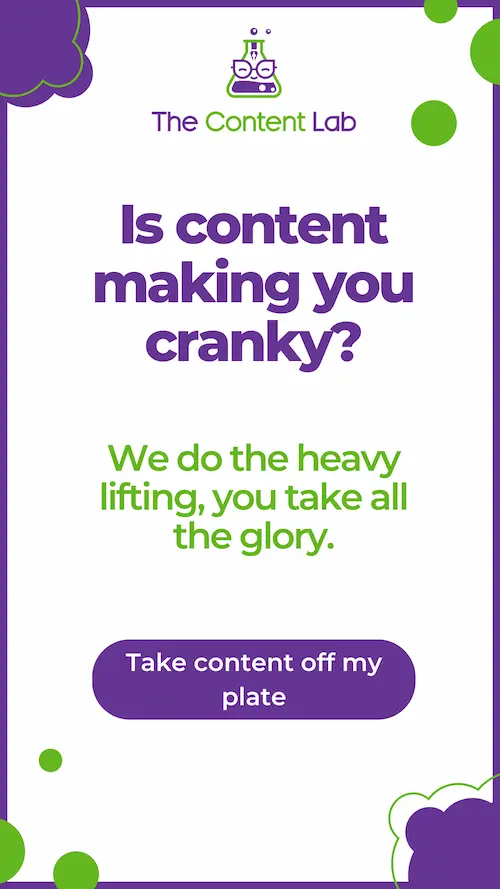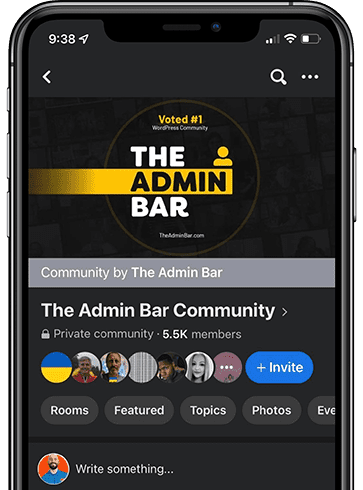Having the perfect team by your side is key to the success of any growing company.
But how do you attract high-quality, talented workers that are the ideal fit for your business so you can create your own digital agency version of The A-Team?
I pity the fool who doesn’t have a brilliantly-crafted careers page on their website! (I know that Mr. T quote is from Rocky III, but I’m just going with it.)
Simply put, incorporating a designated careers page into your website can help you streamline your hiring process while attracting star talent that will become a valuable member of your fantastic team.
Is a careers page really necessary?
In a highly competitive job market, time is of the essence.
One must act quickly before the clock strikes twelve and your agency transforms into an undesirable ogre, destined for an eternity of swamp-dwelling and perpetually coming second to the seemingly “better” agencies that, in reality, could never compare to yours.
Ok, maybe not quite. But you certainly don’t want to lose your ideal employee to another agency that won’t suit them as well, all because you don’t know how to attract suitably qualified candidates with expertly crafted job listings.
Attempt at a Shrek analogy over; let’s get right into why investing your time in writing a dedicated careers page benefits your agency in the long run.
Why is creating a great career page so important?
You’ve already spent a ton of time agonizing over your website, and I’ve got the audacity to suggest you add another page after all your hard work?
I know, sorry. However, I promise that a career page can add real value to your website and to your agency as a whole!
You’re probably wondering what’s the point in writing a careers page when it’s much easier to post job openings on your local free job boards or career website such as LinkedIn.
So, why create a career page on your website – even if you’re not hiring?
1. A chance to highlight company culture
Your company is an awesome place to work, and your incredible staff already knows that!
But those talented potential candidates still need a glimpse into what life is like on the inside to realize that for themselves.
Use your website career page as an opportunity to showcase just how great your company is!
What are the perks of working with you? How do you look after your employees’ well-being? Does your team like to share obscure memes and GIFs in excess?
Whatever makes your agency so special, use your career page to tell them!
2. Saves you (and applicants) time
When you’ve got a detailed careers page for your open positions, you’ll have a one-stop place for potential candidates looking to make their next career move.
Spare everybody their time and sanity. Remove the need to laboriously search for information on your company.
Instead, list everything they need to know on your career page to give yourself the best chance at attracting the right fit for the role.
This approach also saves you time because when you have all the answers about current job openings on your careers page, you won’t have to waste time replying to inquiries and answering emails. Yay for eliminating pointless correspondence!
3. Makes communication easy
One of the biggest things that slow down job applications is communication.
When you’re looking to hire, it’s likely that your agency is already super busy and potentially even at full capacity for work.
Don’t risk losing your next valuable team member to the abyss that is your general inquiries email inbox.
With a designated company career page here, you can set up a job application form that is super simple to complete and never gets sent to spam or missed in your inbox!
How to create a career page on your website
Now that you know why you should have one, it’s time to figure out how to create a successful career page that is so irresistible it will help you achieve the proverbial #SquadGoalz, as the youths say.
Therein lies lesson one in what NOT to do; a feigned attempt to connect with potential applicants by pretending to be down-with-the-kidz, an approach many large corporations are no strangers to.
Anyway, that’s enough shade for now. Let’s focus on what you should do instead!
As an agency owner and copywriter myself, here are my top five insider tips that will help you write attractive career pages so you can advertise job openings and create your perfect team in no time.
1. Remember, it’s about your applicant
While it’s essential to highlight all the amazing things about your company on your career page, here is your friendly reminder that it ain’t all about you, sweetie.
You’ve got to remember who career pages are actually for: your applicants.
Just like when you’re writing content for the benefit of your clients, your career page has to be written for the benefit of your potential candidates.
You must first show talented workers why your agency is the right fit by demonstrating what’s in it for them.
Most millennials and Gen Z applicants will be looking at salary, company benefits, and working hours, but they’ll also be looking to see what your company culture is like. In fact…
- 88% of job seekers are convinced a healthy culture at work is vital for success
- 46% of job seekers say workplace culture is essential when finding their career path
- 86% avoid companies with bad reputations
So, think about how you want your agency and culture to be perceived by potential employees by:
- Including employee testimonials
- Listing fun events you’ve done over the years
- Highlighting the benefits you offer team members
- Demonstrating the types of clients you work with and projects you’ve completed
2. Always be transparent about job openings
Being transparent about job descriptions is vital for the success of careers pages, so make sure you let your candidates know what they can expect from your hiring process.
When writing your company’s career page, go into detail about what the vacant positions entail, what’s expected of candidates, and what other candidate experience you’re looking for.
You’ll be able to avoid interviewing or reviewing unsuitable applicants by listing everything you want from qualified applicants, like experience, skills, and personality.
Be sure to write your career page in your company’s tone of voice so potential candidates can get an even better read on who you are as a company, your company’s core values, and what working for you would be like.
3. Showcase your team
Your candidates want to know what it’s like to work for you, but they also want to know what it’s like to work with your team.
By showcasing your team members and adding a small testimonial from each of them on your careers page, you can put your applicant at ease, reassuring them that your agency is a lovely place to work and not like something out of George Orwell’s 1984.
Not only will they be able to see what their potential future teammates look like, but they’ll also get a further sense of your company’s culture and whether they feel they would fit in.
If you’re feeling a little creative, why not include a video that shows off your team at work, work events, and fun things you did as a team? You can also add video testimonials to make your careers page more engaging.
4. Know who you’re writing to
Knowing who your ideal candidate is will make it easier to write your career page.
If you can picture your best employee in your head and use them when writing your career page, you can craft a page designed to attract the same type of people.
Think about what your star team member:
- Wants to achieve
- Likes to do
- Doesn’t enjoy doing
- Does in their spare time
These might seem trivial, but they’ll help you picture what benefits your target employee is looking for and what they want in a career so you know what you should be offering.
For example, are you looking for somebody determined to progress in the industry? Then highlighting ongoing training and opportunities for promotion is an excellent thing to add to career pages.
5. Make things easy for your job seekers
From the content and job description to apply for the open positions, the best career pages are to the point and as user-friendly as possible.
If your careers page is unclear or the application process is a total mess, your potential future star team member will likely decide it’s not worth their time and move on to the next offer.
Here’s how to make sure your career page is simple for everyone to navigate:
- Write easy-to-understand content
- Use bullet-pointed lists in your job description
- Don’t write long walls of text
- Include video and images
- Make it easy to contact you
- Create a simple application form
Every good career page is different because every company is looking for a different type of applicant. Still, making the application as straightforward as possible for your target employee is always essential.
Are you converted to the idea of creating your own company’s career page?
By now, you hopefully can see the many wonderful benefits of including a great career page on your website to showcase new top job opportunities and openings, your company’s culture, and create a strong team.
A career page is an excellent opportunity to showcase just how awesome your agency is and how incredible your existing team is so that you can attract the ideal recruits every time!






